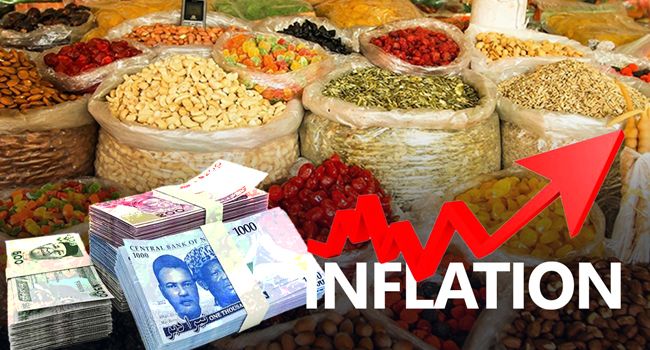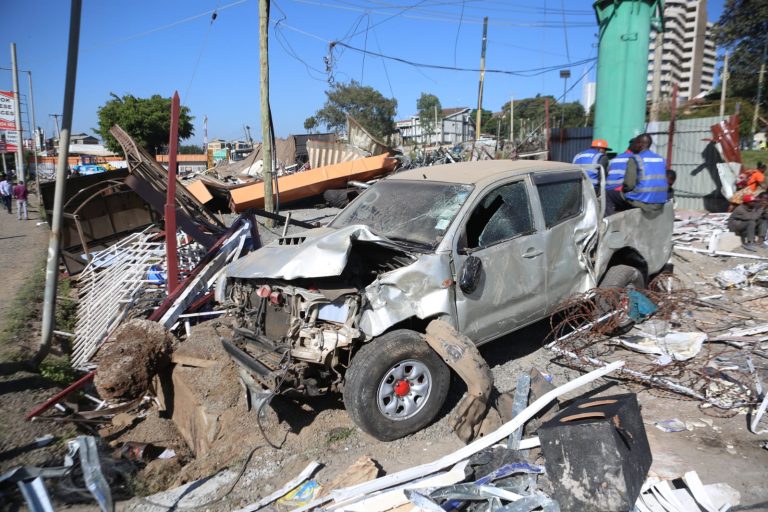
Nigeria’s inflation rate eased for the fifth straight month in August 2025, offering a glimmer of hope for consumers struggling with high living expenses across the country.
According to fresh data released by the National Bureau of Statistics (NBS) on Monday, the country’s headline inflation rate dipped to 20.12%, down from 21.88% in July, marking a 1.76 percentage point drop month-on-month, and a steep fall from 32.15% in August 2024.
Despite the decline in inflation, prices are still rising albeit at a slower pace. The Consumer Price Index (CPI), which measures the average change in the prices of goods and services, increased slightly to 126.8 points in August, up from 125.9 points in July.
On a monthly basis, inflation stood at 0.74%, a significant slowdown from 1.99% in the previous month, signaling a broad cooling of price increases nationwide.
“The CPI rose to 126.8 in August 2025, reflecting a 0.9-point increase from July. The headline inflation rate eased to 20.12%, compared to 21.88% in July,” the NBS said in its official release.
Inflationary pressures remain uneven across the country. In urban areas, the annual inflation rate fell to 19.75% in August, a sharp drop from 34.58% a year earlier. Rural inflation, however, remained slightly higher at 20.28%, though also significantly down from 29.95% in August 2024.
On a monthly basis, inflation in urban areas slowed to 0.49%, compared to 1.86% in July, while rural inflation was recorded at 1.38%, down from 2.30% the previous month.
The figures point to a lingering inflation burden in rural communities, where poor road networks, security concerns, and supply chain disruptions continue to push prices higher than in urban centers.
Food Inflation Still Elevated, But Easing
Food inflation the biggest contributor to overall inflation in Nigeria—also moderated in August, though it remains high.
The food index stood at 21.87% year-on-year, down sharply from 37.52% in August 2024. On a month-to-month basis, food prices increased by 1.65%, slower than the 3.12% growth recorded in July.
According to the report, the easing in food inflation was driven by declining prices of staple items such as rice, maize flour, millet, guinea corn flour, semolina, and soya milk.
Despite the moderation, food prices remain particularly high in northern states, where insecurity and logistical challenges continue to disrupt the movement of goods.
The 12-month average for food inflation also fell to 25.75%, compared to 36.99% a year ago.
Core Inflation Points to Structural Pressures
Core inflation, which excludes volatile items like food and energy, declined year-on-year to 20.33% in August from 27.58% in the same period last year.
However, the core index rose on a monthly basis to 1.43%, up from 0.97% in July suggesting that non-food price pressures are still persistent.
This increase was mainly driven by sectors such as housing, electricity, gas, transportation, education, and healthcare highlighting structural issues that policymakers continue to grapple with.
State-by-State Breakdown: Who’s Paying More?
Inflation trends varied widely across Nigeria’s 36 states:
- Highest Year-on-Year Headline Inflation:
- Ekiti: 28.17%
- Kano: 27.27%
- Oyo: 26.58%
- Lowest Year-on-Year Headline Inflation:
- Zamfara: 11.82%
- Anambra: 14.16%
- Enugu: 14.20%
Food Inflation by State:
- Highest:
- Borno: 36.67%
- Kano: 30.44%
- Akwa Ibom: 29.85%
- Lowest:
- Zamfara: 3.30%
- Yobe: 3.60%
- Sokoto: 6.34%
Month-on-Month Inflation (August):
- Fastest rises:
- Yobe: 9.20%
- Katsina: 8.59%
- Sokoto: 6.57%
- Sharpest drops:
- Enugu: –5.32%
- Taraba: –3.64%
- Nasarawa: –3.56%
All Eyes on the Central Bank
The inflation figures come just days before the Central Bank of Nigeria’s Monetary Policy Committee (MPC) is set to meet on September 22–23, 2025.
With five consecutive months of disinflation under its belt, the CBN could have more policy flexibility. However, the continued pressures from food and core inflation may compel the MPC to retain its cautious stance, particularly as it weighs the effectiveness of the current 27.5% benchmark interest rate.



